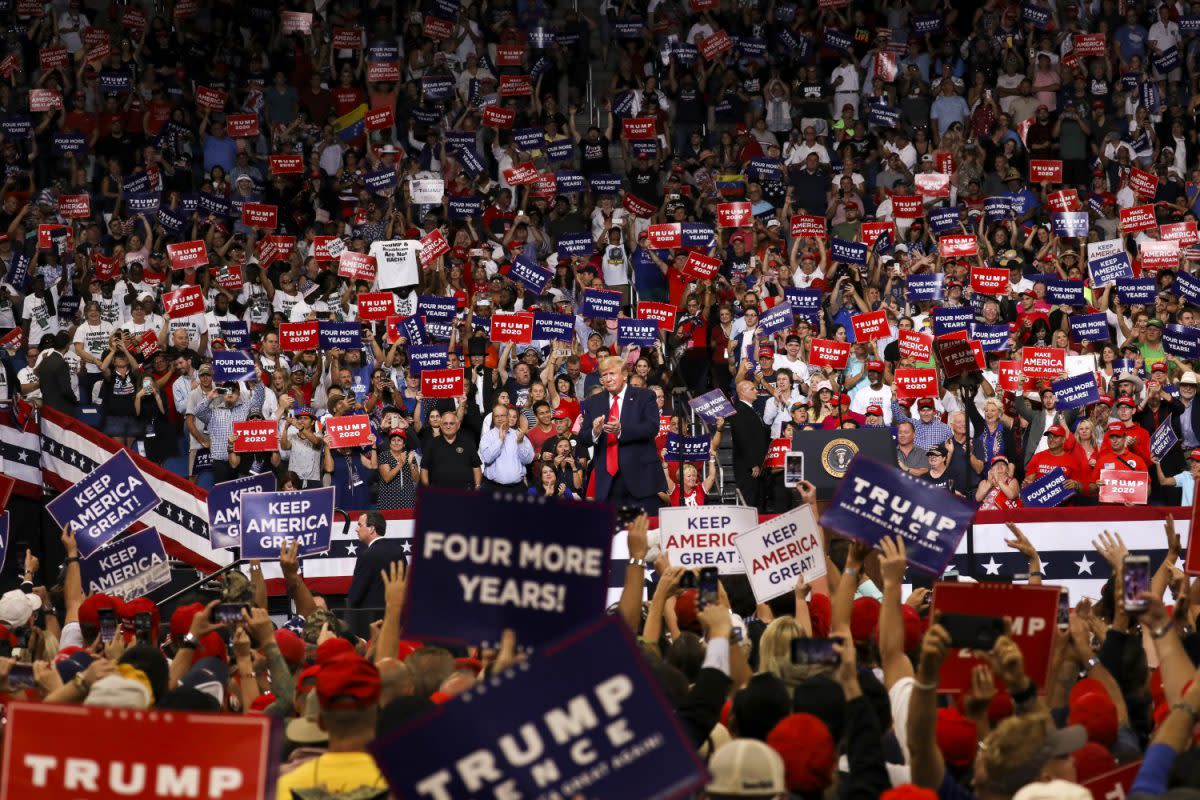June 2019 Debate
Warren holds 3rd place - Updated July 4, 2019
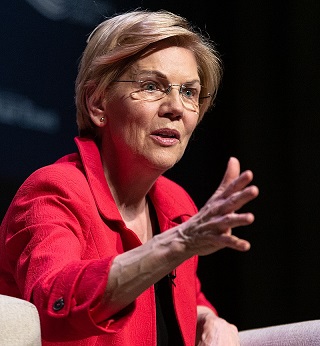
June 26 Debate - Updated July 4, 2019
June 26
| Pre-Debate Out of 20
| DNC seed out of 10 on stage
| Post-Debate out of 20
| Effect of Debate
|
|---|---|---|---|---|
Warren
| 3
| 1
| 3
| 0
|
O'Rourke
| 6
| 2
| 6
| 0
|
Booker
| 8
| 3
| 8
| 0
|
Klobuchar
| 9
| 4
| 10
| -1
|
Gabbard
| 10
| 6
| 9
| +1
|
Castro
| 11
| 5
| 11
| 0
|
Inslee
| 13
| 8
| 16
| -3
|
Ryan
| 15
| 7
| 15
| 0
|
Delaney
| 17
| 10
| 14
| +3
|
deBlasio
| 19
| 9
| 20
| -1
|
DNC seed determined by where each candidate stands, which was based on DNC accepted polls. Post debate rank and effect of debate based on changes in non-polling and polling data.
June 26 Pre-Debate Analysis - Updated June 19, 2019
DNC has established their "seeds" by announcing where each candidate will stand. The center most candidates have polled the best so far, with Warren 5th from the left with seed #1, and O'Rourke 5th from the right with seed #2. DNC seeding aligns with polling analysis of this author with exception of Delaney who I have as doing better than deBlasio. In the chart above, each candidate's standing out of 20 is based on the aggregate which uses non-polling as a major factor. However, even with your author's use of non-polling data, the overall ranks are close to the DNC seeds. So this puts Warren and O'Rourke center stage on night one.
Considering that O'Rourke is currently polling at 6th best overall out of 20, having a position center stage night one is a very fortunate situation for him, due to the random draw. If the draw had not been random, and had been based on polling alone, O'Rourke would have been one removed from center stage. Now he gets a chance to go up directly against Warren. From Warren's perspective, she needs to "win" this debate, anything less will likely spoil her momentum going into July and the second debate, and could place her mired with candidates in 4th through 6th as she was until the last month. For people tuning in who have not be paying much attention, they may very well wonder where for example Biden and Sanders have both gone to. Viewers will see Warren and O'Rourke standing center stage and there will be serious pressure for them to perform well.
In terms of the rest of the field, Booker is to Warren's left on stage, a good position for him. If he can get enough points made, it seems possible he could come out of this debate 2nd to Warren. On the other side, we have Klobuchar next to O'Rourke and Gabbard next to Klobuchar. These candidates politically are in a different space and I would expect Gabbard will try to make points out of the conventional to get attention and I would expect Klobuchar to play to the middle where she seems comfortable. The problem with that strategy from Klobuchar however is that she needs to get noticed and will want to compete with O'Rourke and Booker for that runner-up outcome to Warren this evening.
Of course, if Warren does not hold her own at the top of this group, then who else might "win?" Of the remaining candidates on the first debate stage, you might expect a surprise performance from either Ryan or Inslee, but how likely would it be that their presentation would exceed the debate performance from say O'Rourke or Booker - I would say very little. Your author expects Warren will hold her position post debate as the best in this group, and that Booker, Klobuchar and Gabbard will test O'Rourke for 2nd best this night. I did not mention Castro, deBlasio or Delaney. Your author expects little from them in terms of overall impact - they are literally on the outside looking in.
Click here for the author's latest update on the national picture.
June 26 Post-Debate Analysis - Updated July 2, 2019
The numbers in the chart above reflect changes in non-polling and polling data. It will take a couple of weeks into July to verify that polling will begin to reflect the immediate changes in non-polling.
Snapshot so far:
- Warren: although she held her own in this debate (perhaps Castro and Gabbard were equals), Harris' terrific performance on night #2 moves her past Warren and Sanders. Warren therefore moves down to #4 from #3. The second tier is now Harris, Sanders and Warren. The question will be (a) how close Harris can get to Biden before the 2nd debate late July and (b) whether Warren continues to move closer to Sanders for 3rd. The CNN poll, released on July 1, with all data collected after the 2nd date of debate #1, shows Warren in 3rd place ahead of Sanders, and only 2% behind Harris. This poll number for Warren tracks well ahead of her trend line, confirming the prediction that her poll numbers will continue to increase, as they approach closer to her non-polling line.
- O'Rourke: did not help his position. However, he also has not slipped as no candidate behind him (Yang or Booker) has made a serious run. The July 1 poll has O'Rourke tied with Booker for 6th but only 1% behind Buttigieg.
- Booker: relatively strong performance but how does he move up? He remains in place #8. For Booker, he is most likely looking at the 2nd debate end of July as a way to settle his credentials for the 3rd debate in September.
- Klobuchar: unfortunate draw being up against Booker, Gabbard and Castro, and not in the contest with Biden, Sanders or Harris. Despite a reasonably good performance, she has slipped one position as Gabbard was best overall on the foreign affairs portion of the debate.
- Gabbard: on foreign affairs, the strongest most clear voice of the group. She has moved up one position to 9th. The major obstacle for Gabbard is qualifying for the 3rd debate in September. She needs better polling or she will be in trouble.
- Castro: strong night but where does he move to? In fact, he has not moved up at all. He remains about 1/2 point behind Klobuchar who is falling back. Castro is another candidate who needs to see better polling or he will miss the 3rd debate.
- Inslee, Ryan, Delaney and deBlasio. Delaney clearly won the night of this group moving up three positions. On the other hand, Inslee lost moving down three positions. Ryan held par and deBlasio fell one position to #20. They all need to worry about qualifying for the 2nd debate and then most certainly the 3rd debate in September. It is difficult to figure out how any of them can create a move necessary to get them into the top ten.
Harris moves up to #2 - Updated June 30, 2019
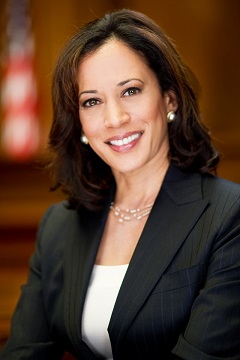
Sanders down two positions - Updated July 4, 2019
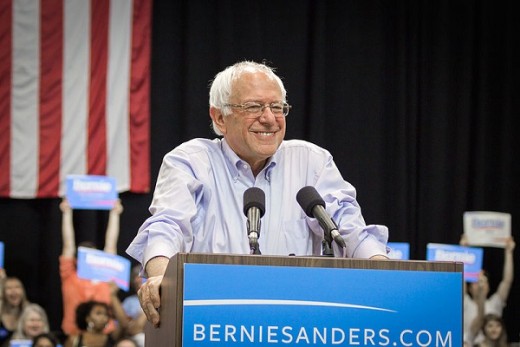
June 27 Debate - Updated July 4, 2019
June 27
| Pre-Debate out of 20
| DNC seed out of 10 on stage
| Post-Debate out of 20
| Effect of debate
|
|---|---|---|---|---|
Biden
| 1
| 1
| 1
| 0
|
Sanders
| 2
| 2
| 4
| -2
|
Harris
| 4
| 4
| 2
| +2
|
Buttigieg
| 5
| 3
| 5
| 0
|
Yang
| 7
| 5
| 7
| 0
|
Gillibrand
| 12
| 6
| 12
| 0
|
Hickenlooper
| 14
| 7
| 13
| +1
|
Swalwell
| 16
| 10
| 17
| -1
|
Bennet
| 18
| 8
| 18
| 0
|
Williamson
| 20
| 9
| 19
| +1
|
DNC seed determined by where each candidate stands, which was based on DNC accepted polls. Post debate rank and effect of debate based on changes in non-polling and polling data.
June 27 Pre-Debate Analysis - Updated June 27, 2019
The DNC draw places the #1, #2, #4 and #5 candidate on the 2nd night. Biden and Sanders standing right in the middle of the pack night two presents an obvious debate strategy from everyone else: long time politicians versus "new" ideas. I expect Biden to play it safe and protect his #1 position, and as such, I do not expect him to win this debate as he will try not to make a mistake and may be "over-prepared" and show little of an ad-hoc spirit. He may also be on the defensive if others go after him. Note that he was not mentioned at all on the 1st night of the debate. Strategically, that seems to make sense as (a) mentioning his name only reminds people that he is in the race and (b) you cannot debate someone one-on-one when he is not present. So for Biden no serious gaffe probably means no change in his position at #1.
Sanders on the other hand will be "Bernie" and no doubt attempt to eviscerate Trump (there was remarkably little of this on night #1) at every point he can and become passionate off the top. He needs to play to his base. He does not have Warren on stage but she is his natural competition politically. Warren has terrific momentum right now and Sanders has the least momentum of any of the top candidates. Sanders needs to do well or he could slip from the 2nd position moving towards the 2nd debate late July.
Buttigieg standing next to Biden provides him a terrific opportunity to become known to people. Harris standing next to Sanders is a fortunate position for her as she can easily make that contrast and she does not have to compete adjacent to Warren, Klobuchar or Gabbard, all of whom are in the top ten and all of whom debate on night one (and based now on what happened on night #1, they all did well, especially Warren and Gabbard). Given we now O'Rourke is vulnerable at #6 and Booker did well, both Harris and Buttigieg will look to protect positions at #4 and #5. Given that also Warren did well on night #1, the only way that either Harris or Buttigieg move up over time is if Sanders totally blows up in this debate.
Gillibrand will stand next to Harris and try to be heard but that is going to be very difficult. This is not a good position for her and she has Bennet on her outside, a moderate who will want to contrast his positions with those at the top (Biden and more especially Sanders). As pointed above, the performances on night #1, combined with this position adjacent to Harris, seem to present a daunting task for Gillibrand.
On the left side next to Buttigieg, you have Yang. This is a good opportunity for Yang to become better known, and of all the candidates, this night, he along with Buttigieg have the most to say in terms of new positions based on their backgrounds. Yang's performance is key since O'Rourke is vulnerable above him and Booker had a solid night and would be looking to move up into Yang's #7 spot or perhaps higher.
It will be easy for Hickenlooper, Williamson and Swalwell to get lost in this scramble. Of these three, currently only Williamson is projected as a lock for the end of July debate, so that is added pressure for both Hickenlooper and Swalwell. That is also a problem for Bennet mentioned above, but your author likes Bennet's position at this debate, based on stage position, contrast with competition and momentum. If Bennet flounders here, then you can put him right into the mix of who should seriously worry about making the end of July debate.
June 27 Post-Debate Analysis - Updated July 2, 2019
Night #2 was quite different from night #1 - there was less on detailed policy overall, more on Trump and considerably more passion. Initial snapshot follows:
- Biden: continues to holds the #1 spot. Polling is needed over the next two weeks to confirm pre-debate - post-debate changes in non-polling data. Non-polling has already moved Biden off of his lofty peak and could make him more vulnerable. The July 2 CNN/SSRS poll shows him continuing in 1st but much closer to a 2nd place Harris, only 7% ahead in this poll.
- Sanders: held his own against Biden, in fact, probably did better. However, Harris' dominant performance has bumped Sanders down from #2 to #3. We can add that Warren's performance on night #1 was probably judged better than both those of Biden and Sanders. In the July 1 CNN/SSRS poll, Warren grabs 3rd ahead of Sanders. His performance in this one poll is slightly off his trend line.
- Harris: has moved up two positions from #4 to #2. Flat out terrific performance for people who saw the debate. The CNN/SSRS poll is the 3rd poll (after Morning Consult-Politico and HarrisX) to show considerable positive movement.
- Buttigieg - good performance with a really fine response to the difficult South Bend policing question. Has held the #5 position as none of the next trio (O'Rourke, Yang or Booker) have threatened. However, the July 1 CNN/SSRS poll show him only 1% ahead of O'Rourke and Booker and far behind (13%) 4th place Sanders. The question for Buttigieg is whether is he can maintain a position close enough to the top tier to challenge or whether he is moving down to a tier with O'Rourke, Booker and Yang. Staying even may not be a good enough result for Buttigieg from this debate. The problem is that with (a) Harris winning night #2, and Warren winning night #1 and (b) Biden and Sanders far ahead to begin with, Buttigieg's prospects of improving up are limited.
- Yang: stays at #7 behind O'Rourke and ahead of Booker.
- Everyone else from night #2: Gillibrand held her position at #12. Hickenlooper moved up from #14 to #13. Swalwell dropped from #16 to #17 and Williamson moved up from #20 to #19. This entire group needs to improve polling and some need individual donors to get into the 2nd debate and most certainly to qualify for the 3rd debate.
Lincoln-Douglas Debate
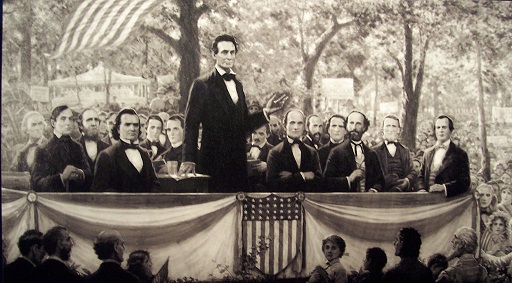
Background on June 2019 debate
Final list: The following 20 candidates qualified based on polls and some on both polls and donors: Biden, Sanders, Harris, Buttigieg, O'Rourke, Warren, Booker, Yang, Klobuchar, Gabbard, Gillibrand, Castro, Hickenlooper, Inslee, Delaney, Ryan, Swallwell, Williamson, Bennet and deBlasio. Bullock thought he was in the debate but ended up being knocked out because the DNC ruled that an open ended ABC/Washington post poll did not count. The "after the fact" selection of polls worked to deBlasio's advantage but not to Bullock's.
There were two random splits: those at 2% and more in polling and those at below 2%. According to the DNC calculation of the accepted polls, there were eight candidates with 2% or more, which are the same as your author's top nine on aggregate minus Yang. So, these eight were split randomly into two groups of four each. The other 12 candidates were split randomly as well, six and six. Six in each group were added to the four from the higher group to make ten in each group.
Why this latest refinement? Since the splits are random, and therefore every combination has the same probability of occurring, it was just as likely to have all 10 candidates on the first or second night to be polling no better than 1% and on the other night to have all of the top eight candidates plus two 1% candidates as any other scheme. This would have made for a really "bad show" on one of the nights. This new scheme at least insured a 4-4 split each night in terms of the so called top candidates. Now before you get too excited, it was just as likely that Biden, Sanders, Warren and Harris (the top four in polls) would have been on the same stage as any other scheme (there are 70 possible combinations of which four will be on stage each night). But at least this way, regardless of which night you watch, you will see some people you recognize. The way it turned out, in fact, three of the top four (Biden, Sanders and Harris) are facing each other. The other advantage for the 1% crowd (12 out of the 20) is that six each night will be be seen by lots of people who presumably tuned in to see their favorite, but who think, well that candidate is really pretty good - I hadn't heard about her/him. By the way, if you want to know how many different combinations of 1% candidates could be organized together in groups of six, the number is 924.
As to her/him, there are six women and 14 men. Randomly, it was just as likely to have all six women on the same stage as any other draw. However, the final draw, fortunate for the DNC, was a 3-3 split in women over each night.



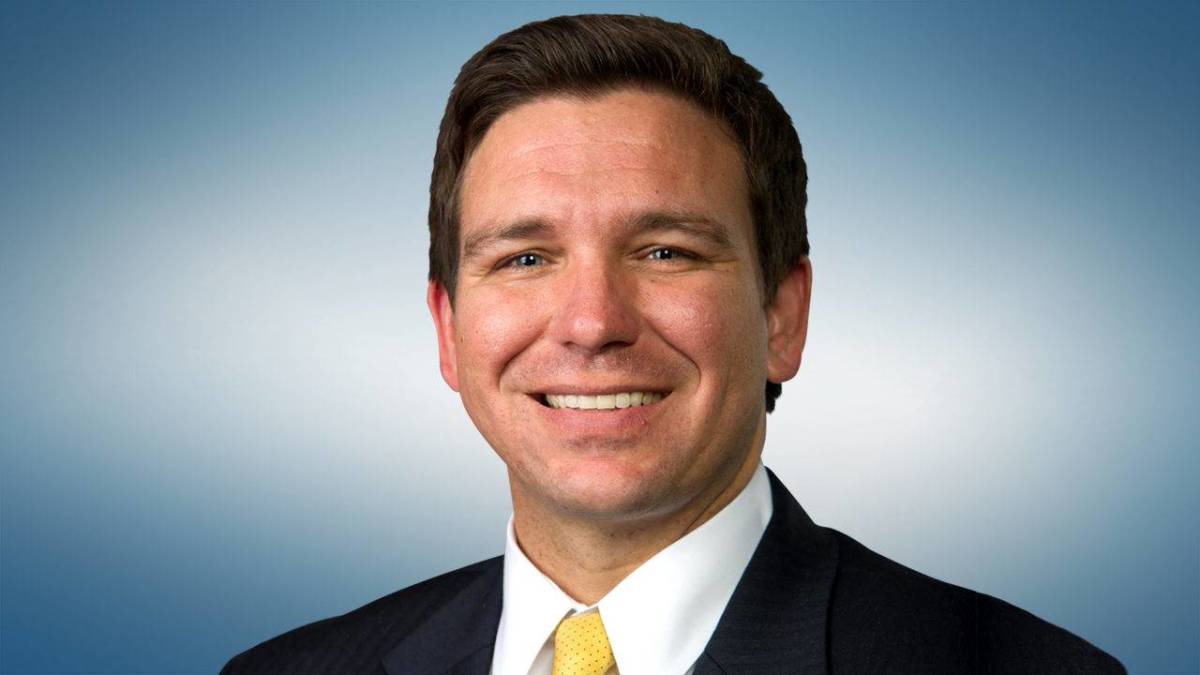
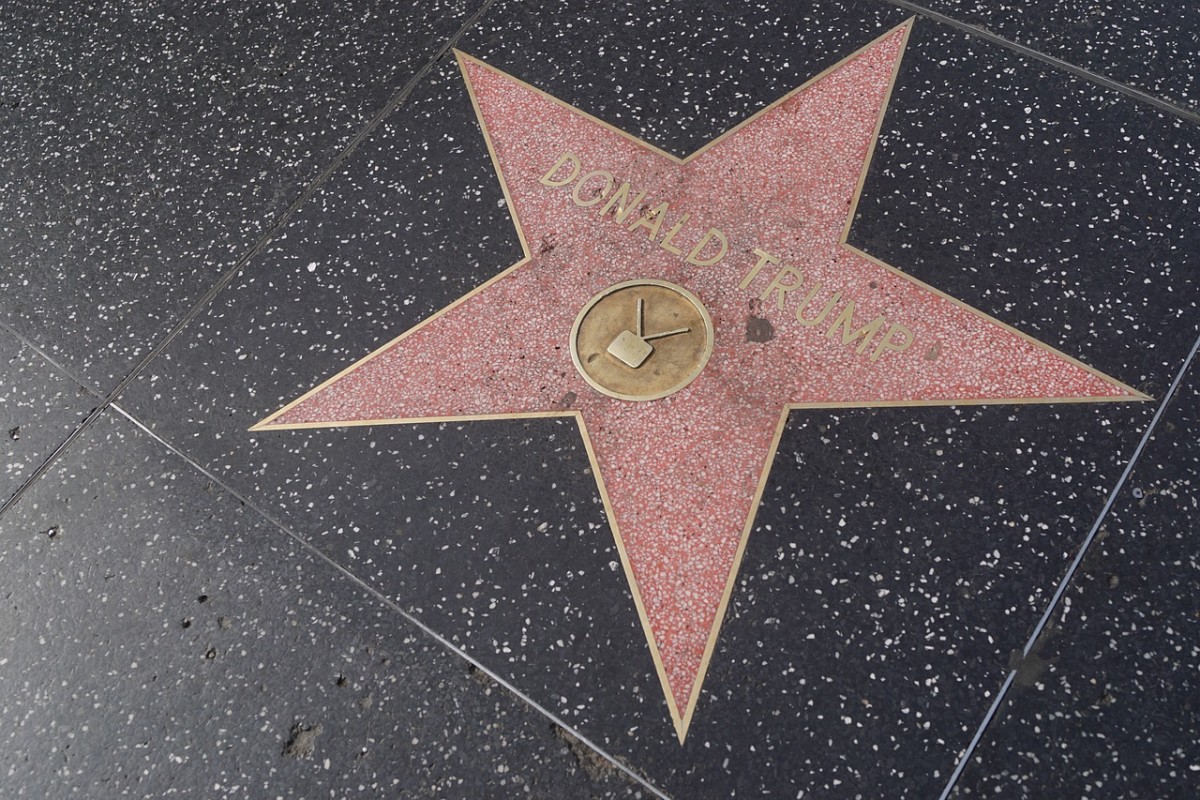
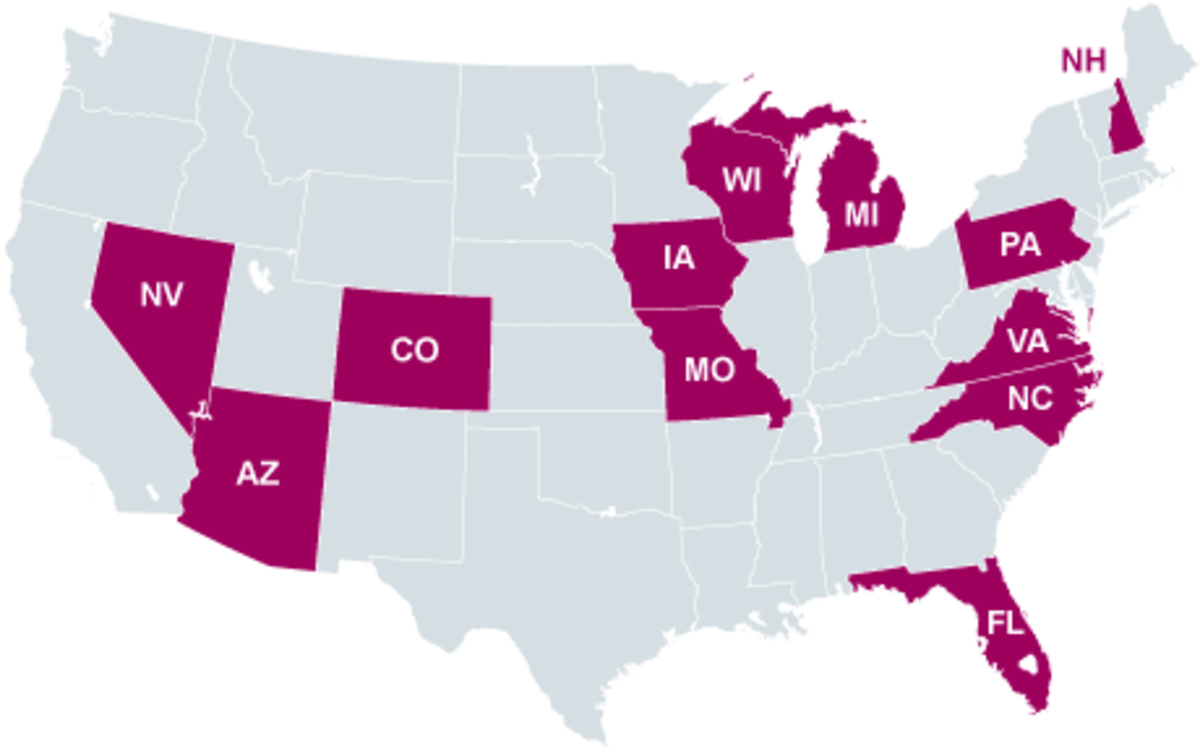
![American Politics: The BIG LIE in Politics, From The Republican Presidential Convention [124] American Politics: The BIG LIE in Politics, From The Republican Presidential Convention [124]](https://images.saymedia-content.com/.image/t_share/MTc2NDYyMjI1MzEyNjU1MzIy/the-big-lie-in-politics-from-the-conservative-side.jpg)
